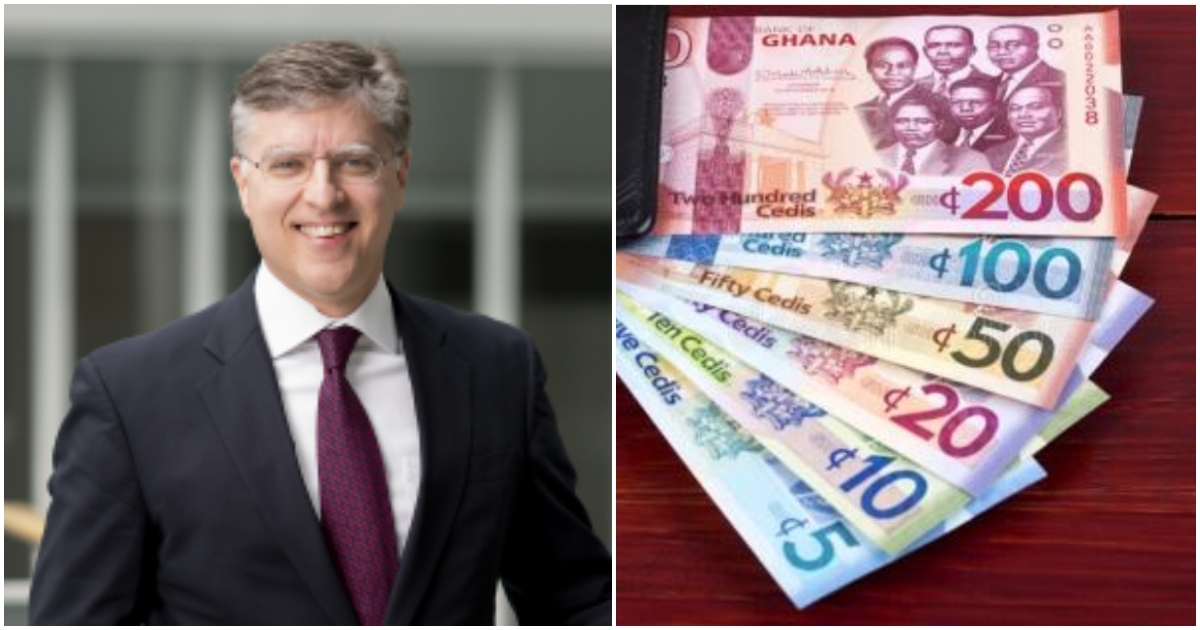Cedi Depreciation: World Bank Economist Explains Why Cedi Keeps Falling And US Dollar Keeps Winning
- World Bank's Marcello Estevão has said emerging market currencies, like the cedi, are taking a hit from the unpredictable events on the global front
- He said aside from the war in Ukraine, the US Federal Reserve has hiked rates, and this was affecting these currencies
- The World Bank's Global Director for Macroeconomics, Trade and Investment said countries cannot do much at the present time
New feature: Check out news exactly for YOU ➡️ find “Recommended for you” block and enjoy!
An economist at the World Bank has detailed reasons why the Ghana cedi and other emerging market currencies are seeing a sharp fall against the US dollar in recent times.
Marcello Estevão, the World Bank’s Global Director for Macroeconomics, Trade and Investment, has said in an opinion piece that emerging market currencies have very few options to deal with the problem now.
“This is not a new phenomenon. The invasion of the Ukraine has triggered an initial appreciation of the US dollar against EM currencies that was larger than appreciations related to the 2013 taper tantrum and previous conflict-related events involving oil exporters,” he stated in a blog post.

Source: UGC
The World Bank economist explained that the dollar’s constant appreciation results from the strong demand for the American greenback.
PAY ATTENTION: Follow us on Instagram - get the most important news directly in your favourite app!
“The economic outlook for most economies points towards a major slowdown. Meanwhile, the war in Ukraine has created massive geopolitical risk and volatility in markets. On top of that, historic inflation has prompted the US Federal Reserve to hike rates aggressively,” he added.
Mr Estevão also explained that these factors, among others, are compelling investors to exit emerging markets like Ghana and even Europe to the US or where there are dollar-denominated assets.
“Many countries – especially the poorest – cannot borrow in their own currency in the amount or the maturities they desire. Lenders are unwilling to assume the risk of being paid back in these borrowers’ volatile currencies,” he explained.
Because of this, many emerging markets have been borrowing and paying their debts in dollars, thus strengthening the US currency.
The cedi has lost about 40% of its value this year, selling at a little above GH¢10 to the dollar at forex bureaus as at August 29, 2022.
Dealing With The Rise Of The Dollar
Marcello Estevão stated that currencies tumbling against the dollar have few options to deal with the situation.
“These issues are best dealt with pre-emptively rather than reactively,” he said.
He has advised countries to act now to shore up their fiscal position and engage in sustainable borrowing to “avoid the next crisis”.
“Even in challenging times, policymakers can find opportunities to encourage investment and spur economic growth while reducing fiscal pressures,” he stressed.
He also urged the international community to speed up debt restructuring to put countries back on a more sustainable fiscal path.
Cedi Depreciation: Economist Backs Injection Of $2 Billion To Strengthen Struggling Local Currency
Meanwhile, YEN.com.gh has reported in a previous story an Economist has said a planned injection of $2 billion into the Ghanaian economy should balance the demand and supply of dollars, and possibly hold the cedi depreciation.
Dr Theresa Mannah-Blankson, a Fellow of the Finance and Economics Pillar of the Centre for Social Justice (CSJ), said the strategy by the government could yield some possible results for the struggling cedi.
She noted, however, that the effectiveness of the move would depend on the actual shortfall of dollars in the economy.
New feature: Check out news exactly for YOU ➡️ find "Recommended for you" block and enjoy!
Source: YEN.com.gh



